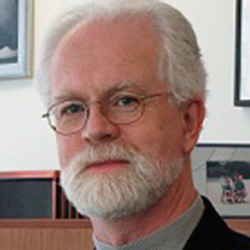Teaching Robots to Adapt to Human Unpredictability
NSF’s Science Nation showcases Professors Todd Murphey and Julius Dewald’s work to develop more helpful robots.
 Professors Todd Murphey and Julius Dewald are trying to change the way we interact with robots, one drawing at a time.
Professors Todd Murphey and Julius Dewald are trying to change the way we interact with robots, one drawing at a time.
Murphey, Charles Deering McCormick Professor in Teaching Excellence and associate professor of mechanical engineering, and Dewald, professor of physical therapy and human movement science and biomedical engineering, are collaborating to usher in a paradigm shift of how we understand robots, from large, monolithic machines used to complete repetitive, mechanical tasks, to models that are interactive and adaptable toward humans. Their latest work has been featured in a new video in the National Science Foundation’s online magazine, Science Nation.
 Before robots can assist humans in everyday settings, they must first learn how to respond to their unpredictable nature. Murphey and Dewald are building these skills through an algorithm-run robot that is programmed to draw. They believe the development of similar human-like behaviors holds potential in the physical therapy space, where robots can seamlessly cater to patients with unique needs and abilities, such as those recovering from a stroke or rehabbing an injury.
Before robots can assist humans in everyday settings, they must first learn how to respond to their unpredictable nature. Murphey and Dewald are building these skills through an algorithm-run robot that is programmed to draw. They believe the development of similar human-like behaviors holds potential in the physical therapy space, where robots can seamlessly cater to patients with unique needs and abilities, such as those recovering from a stroke or rehabbing an injury.
“One of the reasons we started looking at drawing is that the same drawing can be created lots of different ways,” Murphey said in the video. “The order in which you do things can change, what you focus on can potentially change, yet each one of them would be considered a drawing.
Watch the video at the National Science Foundation’s Science Nation website.